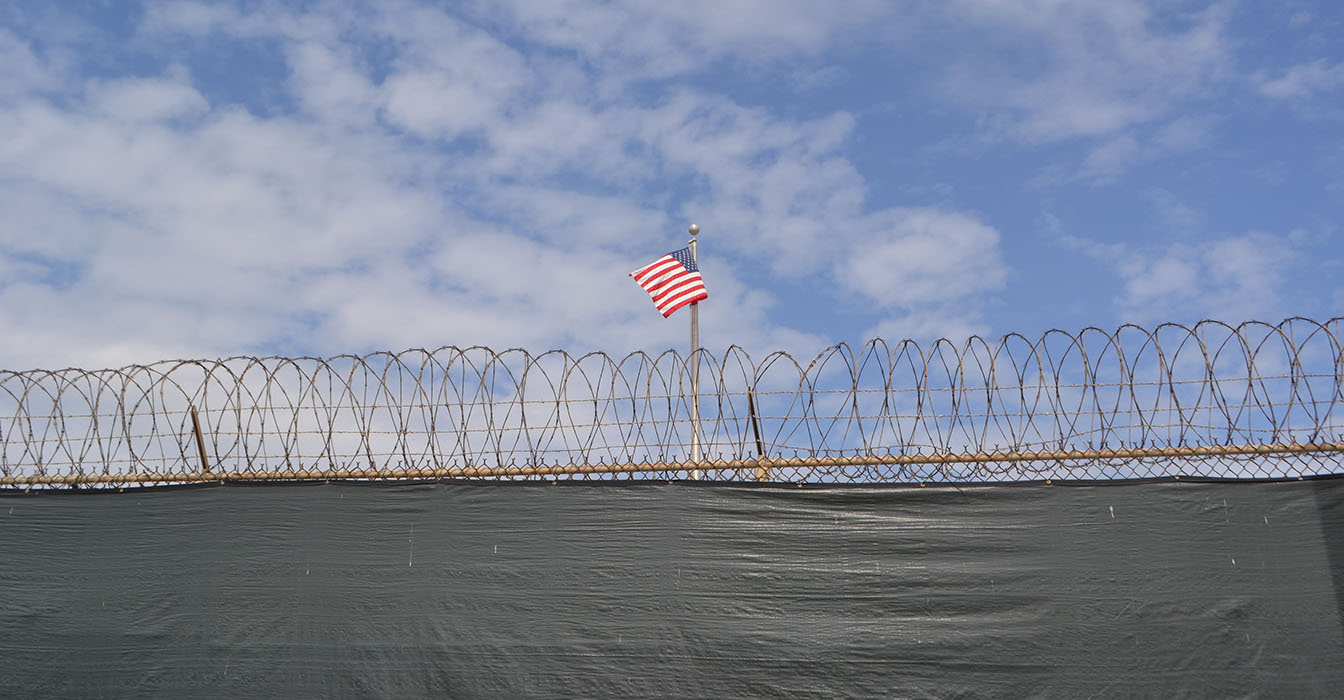Editor's Note: This article was supported by The Pulitzer Center. Originally published on Dec. 30 and updated on Jan. 7.
The appellate court for the military commissions has rejected a government effort to stop the accused mastermind of the Sept. 11 attacks from pleading guilty this week on Guantanamo Bay.
The three-judge panel of the U.S. Court of Military Commission Review agreed with the 9/11 case judge, Air Force Col. Matthew McCall, that Sec. of Defense Lloyd Austin could not legally withdraw from the plea agreements that the official he appointed to oversee the court reached with Khalid Shaikh Mohammad and two co-defendants this past summer.
The 21-page ruling by the CMCR on Dec. 30 means that the guilty pleas by Khalid Shaikh Mohammad, Walid bin Attash and Mustafa al Hawsawi will go forward in the four-week hearing scheduled for this January – at least for now. McCall informed the parties that he plans to hear Mohammad's plea beginning on Friday, Jan. 10.
However, the Justice Department on Jan. 7 requested that the U.S. Court of Appeals for the D.C. Circuit, which hears appeals from the Guantanamo commissions, grant an emergency stay of the plea proceedings as the government asks the circuit court to consider its petition for a writ of mandamus.
"The harm to the government and the public will be irreparable once the judge accepts the pleas," the government contended in its request for the stay.
The court’s convening authority, Susan Escallier, signed plea deals with three of the four remaining 9/11 defendants on July 31, following about two years of negotiations managed by the case’s lead prosecutor, Clay Trivett. (McCall severed a fifth defendant, Ramzi bin al Shibh, from the case in September 2023 after finding he was not mentally competent to assist in his own defense.) Under the terms of the deals, Mohammad, bin Attash and al Hawsawi agreed to admit to their alleged roles in the 9/11 attacks in exchange for the removal of the death penalty as a sentencing option.
News of the deals immediately drew both praise and intense opposition. Austin attempted to revoke the agreements in a memorandum to Escallier on Aug. 2. But McCall sided with the defense teams in a ruling on Nov. 6, concluding that Austin lacked the authority to terminate deals reached by the subordinate he appointed.
McCall noted that the three defendants had begun “performance” under the agreements by signing stipulations admitting to the alleged crimes and by declining to examine witnesses and otherwise participate in the pending pretrial motions. One defendant, Ammar al Baluchi, did not reach a plea deal. He is still seeking the suppression of confessions he gave to FBI agents on Guantanamo Bay in early 2007, following his transfer from CIA black sites.
The appellate panel agreed with McCall's reasoning when denying the government’s request for a writ of mandamus on Dec. 30. The judges concluded that Austin could take authority for approving any “future” plea deals but could not revoke “existing [agreements] because the respondents had started performance” of them.
The panel stated that the government did not meet the “clear and indisputable” test set by guiding case law in seeking the extraordinary relief of a writ to reverse McCall's decision on the plea agreements.
McCall told the parties during the November hearing that he wanted to hear Mohammad's guilty plea the week of Jan. 6, with bin Attash and al Hawsawi to possibly follow during the second week. He plans to hear oral arguments on the suppression case for al Baluchi during the second half of January. Testimony in the long-running dispute over the admissibility of statements given to the FBI concluded in November.
Dan D'Allara, whose twin brother John D'Allara, an officer with the New York Police Department, was killed on 9/11, referred to the plea deals as “an incomprehensible betrayal” of the victims. In emailed comments, he supported a challenge to the CMCR’s ruling.
“This decision screams out for the next appeals court,” D'Allara said.
About the author: John Ryan (john@lawdragon.com) is a co-founder and the Editor-in-Chief of Lawdragon Inc., where he oversees all web and magazine content and provides regular coverage of the military commissions at Guantanamo Bay. When he’s not at GTMO, John is based in Brooklyn. He has covered complex legal issues for 20 years and has won multiple awards for his journalism, including a New York Press Club Award in Journalism for his coverage of the Sept. 11 case. His book on the 9/11 case is scheduled for publication this year.


